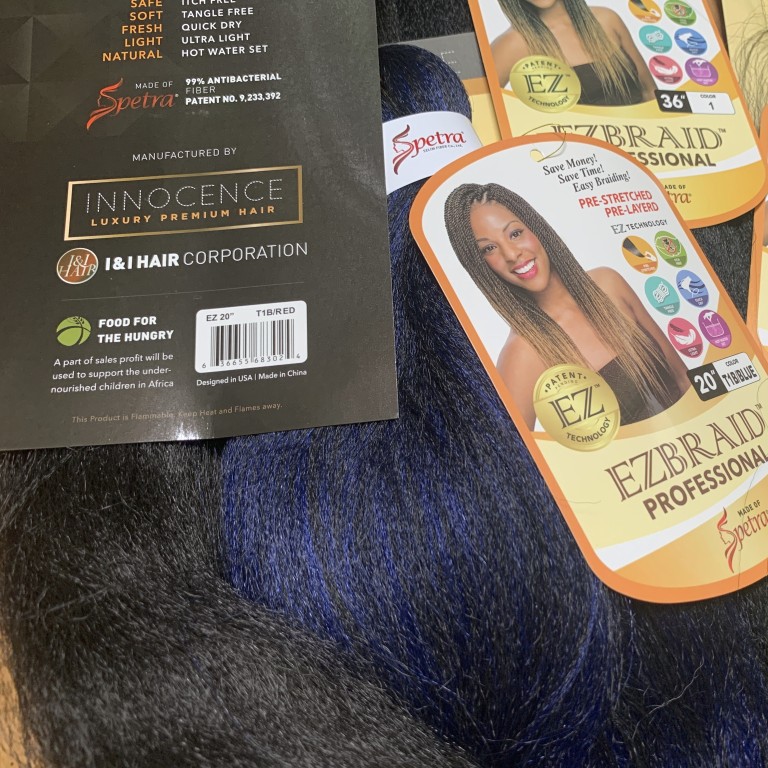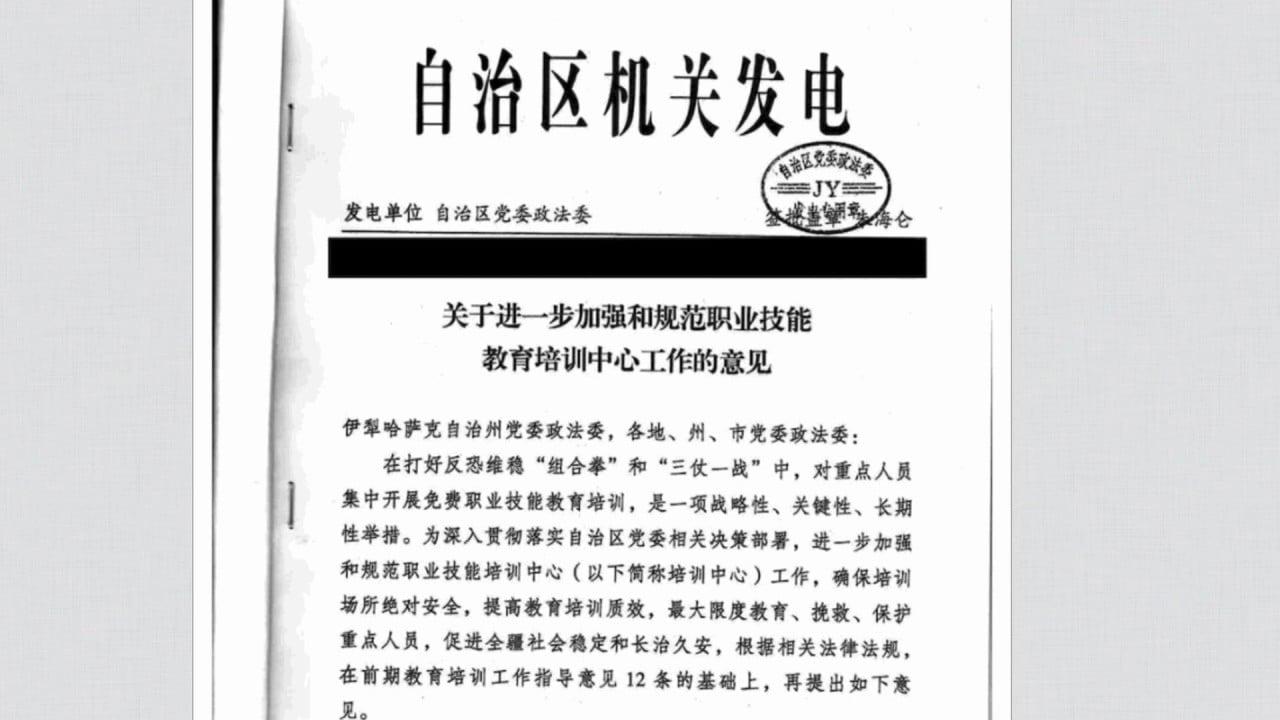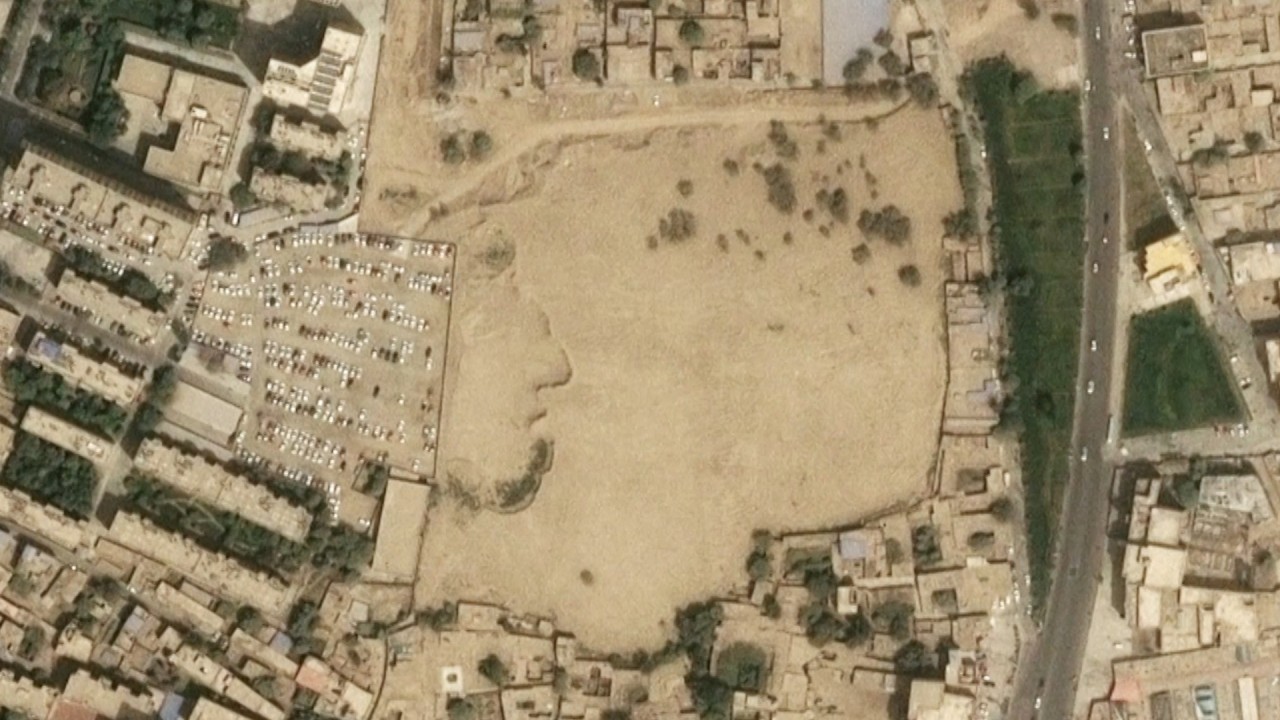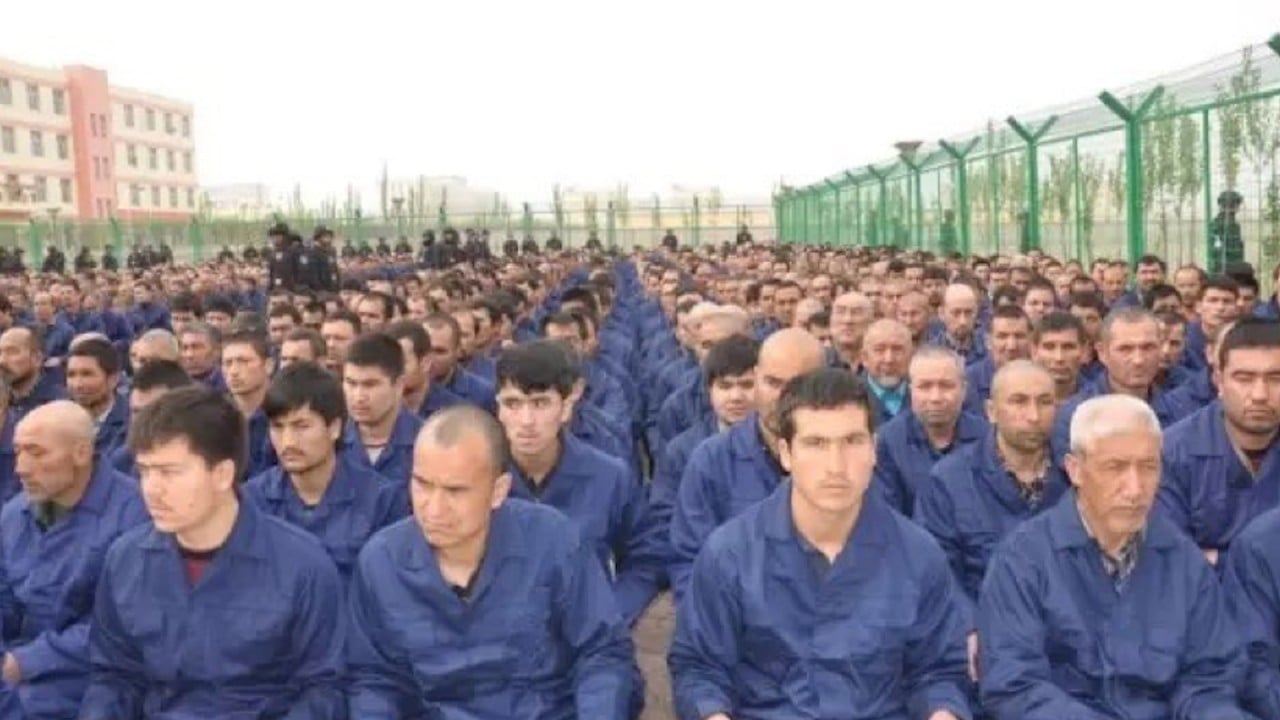
Weaves ‘made from hair of China’s Xinjiang camp detainees’ seized on arrival in US
- US Customs applies one of its rare blocks on imports over suspicions that people making them face human rights abuses
- The products’ maker is the second firm based in Xinjiang to have a shipment of hair accessories blocked in the past two months
US Customs and Border Protection (CBP) officials said 13 tons (11.8 metric tonnes) of hair products worth an estimated US$800,000 were in the shipment.
For the second time this year, the CBP has slapped one of its rare detention orders on shipments of hair weaves from China, based on suspicions that people making them face human rights abuses. The orders are used to hold shipping containers at the US ports of entry until the agency can investigate.
“The production of these goods constitutes a very serious human rights violation, and the detention order is intended to send a clear and direct message to all entities seeking to do business with the United States that illicit and inhumane practices will not be tolerated in US supply chains,” said Brenda Smith, executive assistant commissioner of CBP’s Office of Trade.

03:47
Leaked state documents describe repressive operations at China’s detention camps in Xinjiang
Rushan Abbas, a Uygur American activist whose sister, a doctor, went missing in China almost two years ago and is believed to be locked in a detention camp, said women who use hair weaves should think about who might be making them.
“This is so heartbreaking for us,” she said. “I want people to think about the slavery people are experiencing today. My sister is sitting somewhere being forced to make what, hair pieces?”
Wednesday’s shipment was made by Lop County Meixin Hair Product Company.
In May, a detention order was placed on Hetian Haolin Hair Accessories, although those weaves were synthetic, the agency said.

02:31
Satellite images show China has bulldozed Uygur burial sites in Xinjiang
Hetian Haolin’s products were imported to the US by Os Hair in Duluth, Georgia, and I & I Hair, headquartered in Dallas. I & I’s weaves are sold under the Innocence brand around the US.
China sends Uygurs from Xinjiang camps to other parts of country
Media reports have repeatedly found people in the camps and prisons were making sportswear and other apparel for US brands.
Associated Press tried to visit Hetian Haolin Hair Accessories over a year ago during an investigation into forced labour in camps. But police called the taxi driver taking its journalists to the area, ordering them to turn back and warning that the taxi’s coordinates were being tracked.

01:09
China claims most Muslim detainees have left Xinjiang re-education camps and returned to society
From the road, it was clear that the factory – topped with “Haolin Hair Accessories” in big red letters – was ringed with barbed wire fencing and surveillance cameras, and the entrance was blocked by helmeted police. Across the street, what appeared to be an educational facility was topped with slogans urging people to obey the Communist Party.
It was unclear whether the factory was part of a detention centre, but former detainees in Xinjiang have described being shuttled to work in fenced, guarded compounds.
Pompeo demands China end ‘Uygur sterilisations in Xinjiang’
The Chinese Ministry of Foreign Affairs has said there is no forced labour, nor detention of ethnic minorities.
Last December, Xinjiang authorities announced that the camps had closed and all detainees had “graduated”, a claim difficult to corroborate independently given tight surveillance and restrictions on reporting. Some Uygurs and Kazakhs have said their relatives have been released, but many others say theirs remain in detention, were sentenced to prison or transferred to forced labour in factories.

01:22
US blacklists 28 Chinese entities over Xinjiang
Although tariffs and embargoes over political issues are fairly common, it is rare for the US government to block imports produced by forced labour.
The 1930 Tariff Act prohibited those imports, but the government has enforced the law only 54 times in the past 90 years. Three quarters of those bans blocked goods from China, and enforcement has risen since former president Barack Obama strengthened the law in 2016.

